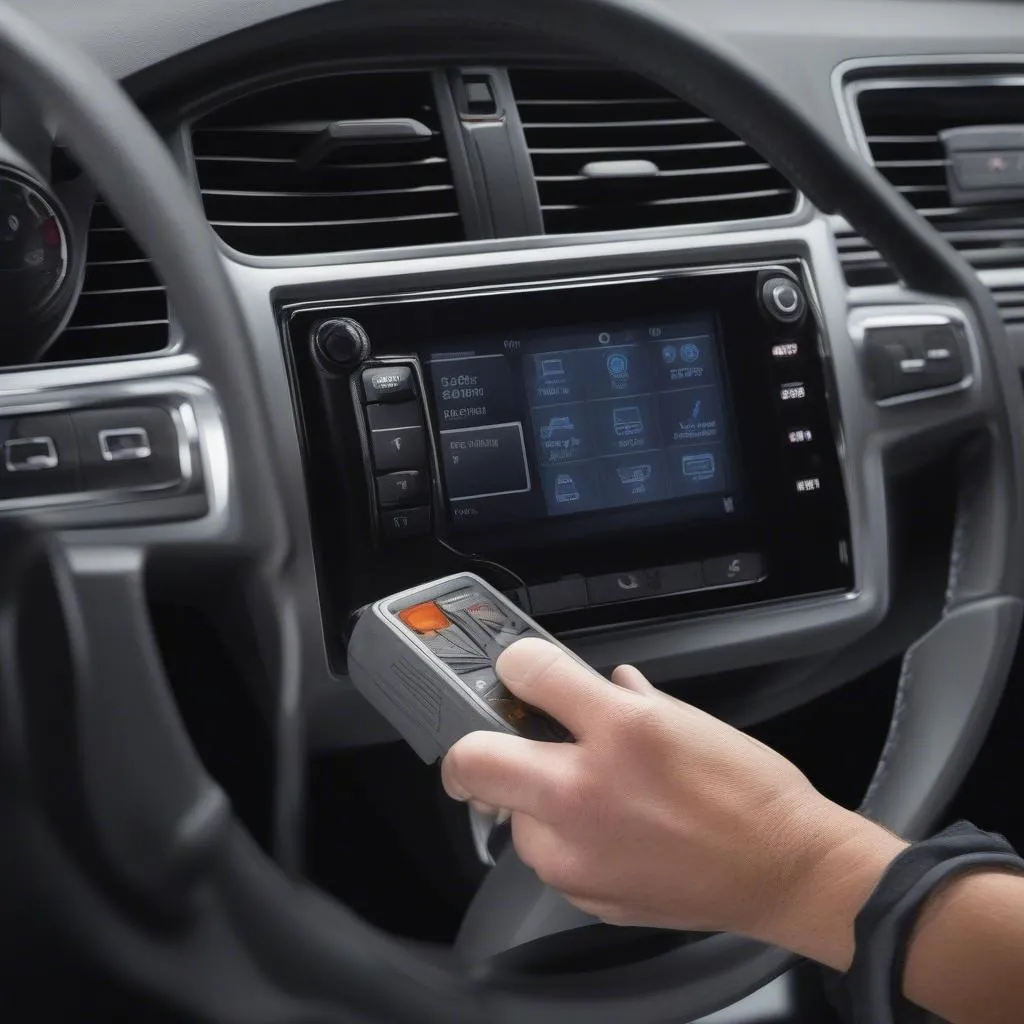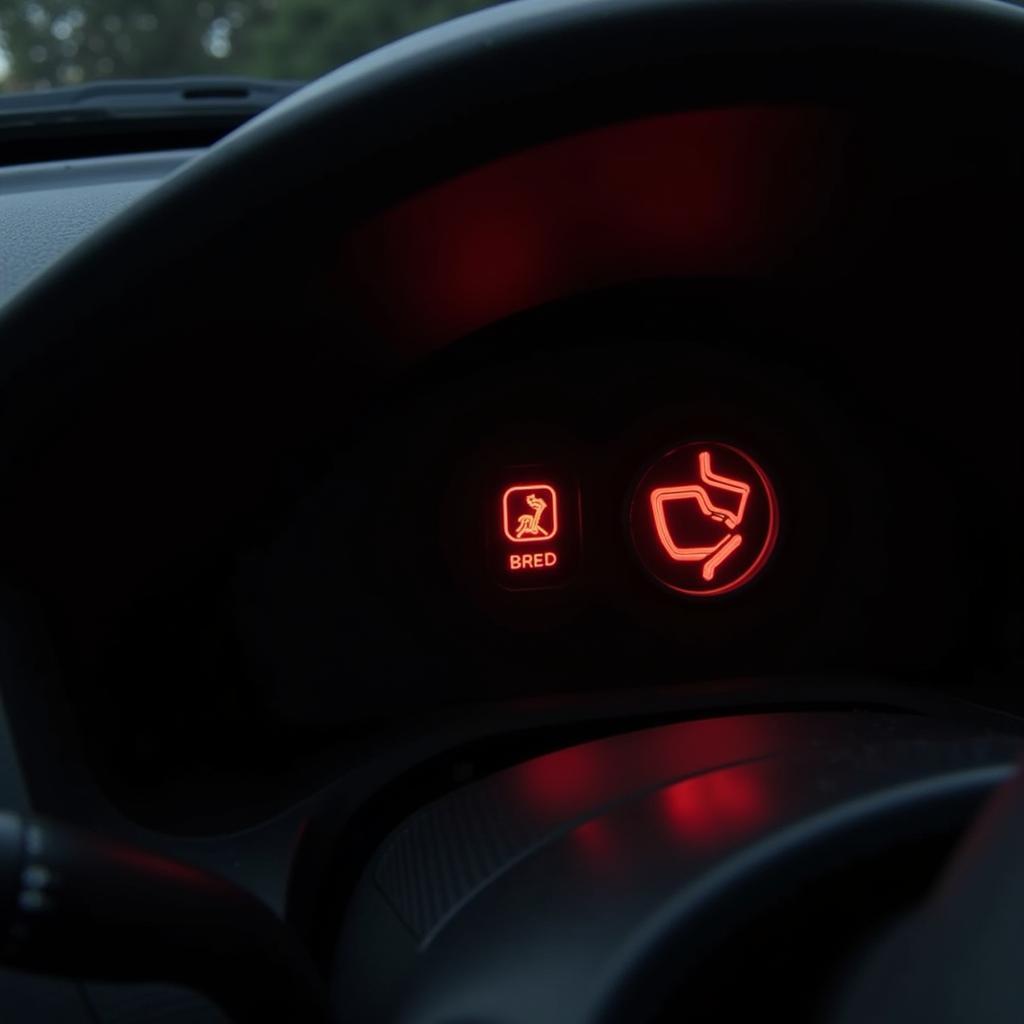The “2007 Toyota Prius brake warning light” is a common search query, indicating concern among Prius owners. A glowing brake warning light on your dashboard can be unsettling. This article provides a comprehensive guide to understanding and addressing the issue of the brake warning light on a 2007 Toyota Prius.
Understanding Your Prius’s Brake System
Before diving into the causes of a lit brake warning light, it’s helpful to grasp the basics of how your Prius’s braking system functions. Unlike traditional gasoline-powered vehicles, the 2007 Prius utilizes a regenerative braking system in conjunction with conventional hydraulic brakes. When you brake, the electric motor acts as a generator, converting kinetic energy into electricity to recharge the hybrid battery. This regenerative braking system reduces wear on the traditional brakes and improves fuel efficiency.
Common Causes of the 2007 Prius Brake Warning Light
There are several reasons why your 2007 Prius brake warning light might illuminate. Some of the most common causes include:
- Low Brake Fluid: Brake fluid is essential for transmitting the force applied to the brake pedal to the wheels, enabling your car to stop. A leak in the brake lines or a worn-out master cylinder can lead to low brake fluid levels.
- Worn Brake Pads: Brake pads are designed to wear down over time. When they become too thin, a sensor triggers the brake warning light, indicating the need for replacement.
- Faulty Brake Light Switch: The brake light switch activates the brake lights when you press the brake pedal. If this switch malfunctions, it can also illuminate the brake warning light.
- Problem with the Regenerative Braking System: As a hybrid, your Prius relies on a regenerative braking system. Issues with the battery, electric motor, or related components can trigger the brake warning light.
- ABS Issue: While less common, a problem with the Anti-lock Braking System (ABS), such as a faulty wheel speed sensor, can also be the culprit.
Diagnosing the Problem
Determining the exact cause of the brake warning light requires a systematic approach:
- Check the Brake Fluid Level: Park your car on a level surface and open the hood. The brake fluid reservoir is located on the driver’s side, towards the back of the engine bay. Check the fluid level – if it’s below the “MIN” mark, add the appropriate brake fluid (DOT 3).
- Inspect Brake Pads: Visually inspect the brake pads through the spaces between the wheel spokes. If the pads appear thinner than ¼ inch, it’s time for a replacement.
- Consider Recent Repairs: If the brake warning light came on after recent work on your brakes or electrical system, it’s possible that a connection was loosened or a component wasn’t installed correctly.
- Utilize a Diagnostic Scanner: A professional-grade diagnostic scanner can read the trouble codes stored in your Prius’s computer, providing valuable insights into the issue.
When to Seek Professional Help
If you’re uncomfortable performing these checks or suspect a more complex issue, it’s crucial to seek assistance from a qualified mechanic specializing in Toyota hybrids. Attempting to diagnose or repair brake problems without proper knowledge and tools can be dangerous.
Preventive Measures to Avoid Future Issues
- Regular Brake Inspections: Adhering to the recommended maintenance schedule in your owner’s manual and having your brakes inspected regularly can help prevent unexpected issues.
- Timely Brake Fluid Flushes: Brake fluid absorbs moisture over time, reducing its effectiveness. It’s essential to have the brake fluid flushed and replaced according to your Prius’s maintenance schedule.
- Careful Driving Habits: Avoid aggressive driving habits like hard braking, which can accelerate brake pad wear.
2007 prius brake system warning light
Conclusion
The brake warning light on your 2007 Toyota Prius should never be ignored. While it may indicate a minor issue like low brake fluid, it could also signal a more serious problem requiring immediate attention. By understanding the common causes, taking steps to diagnose the problem, and seeking professional help when needed, you can keep your Prius running safely and efficiently. Remember, your safety and the safety of others on the road is paramount.


